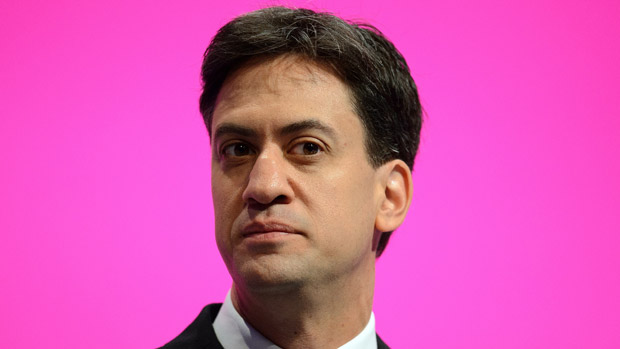Straw ‘mortified’ – but Ed Miliband sees an opportunity
Labour leader uses latest ‘cash for access’ scandal to push for a ban on MPs earning second incomes

A free daily email with the biggest news stories of the day – and the best features from TheWeek.com
You are now subscribed
Your newsletter sign-up was successful
EDITOR’S UPDATE at 13.00: Since this article was posted, Sir Malcolm Rifkind has been suspended from the Conservative Party in Parliament. It could affect his ability to stand as Conservative candidate for Kensington in the general election.
Ed Miliband will try to turn the “cash for access” scandal involving two respected former Foreign Secretaries - Tory Sir Malcolm Rifkind and Labour’s Jack Straw - into an election issue by calling for a “no second jobs” pledge for candidates standing in the general election.
But for many voters, already disillusioned with the political class, willthe spectacle of two of our most senior politicians with their noses in the Westminster trough prove to be the last straw? Danny Finkelstein of The Times reckons that it could result in a boost for the “outsider” parties, Ukip and the Greens.
The Week
Escape your echo chamber. Get the facts behind the news, plus analysis from multiple perspectives.

Sign up for The Week's Free Newsletters
From our morning news briefing to a weekly Good News Newsletter, get the best of The Week delivered directly to your inbox.
From our morning news briefing to a weekly Good News Newsletter, get the best of The Week delivered directly to your inbox.
Straw and Rifkind are the latest to be a caught in a joint Daily Telegraph/Channel 4 Dispatches sting operation. Both men offered to use their positions as politicians on behalf of a bogus Chinese company in return for payments of at least £5,000 per day. (Details here.)
Rifkind described himself as “self-employed” and as someone who had to “earn my income” — despite being paid £67,500 by the taxpayer for his work as an MP. He declared private earnings on top of his MP’s salary of £69,610 in the register of members’ interests while Straw registered private earnings of £112,777.
Around 200 backbench MPs - mostly Tories - top up their MPs’ salaries with consultancies, speeches, articles for newspapers, and directorships. This sort of work is classed as “outside Parliament” but the open secret is that many earn their lucrative private contracts because of their status as MPs inside Westminster.
Straw and Rifkind deny any wrong-doing and have reported themselves to the Parliamentary Commissioner for Standards, who will investigate whether they broke parliamentary rules. (In addition, Straw, who steps down from the Commons at the election, has suspended himself from the Labour Party pending the outcome.)
A free daily email with the biggest news stories of the day – and the best features from TheWeek.com
But many voters will have been appalled at hearing both men on Radio 4’s Today programme this morning trying to justify their action in doubling their incomes.
“I have nothing to be embarrassed about,” said Rifkind. He said that many professional or business people would not stand for election if they were denied the chance to earn more money outside parliament.
“If you are trying to attract people of a professional or business background to serve in the House of Commons and if they are not ministers, it is quite unrealistic to imagine they will go through their Parliamentary career and simply accept a salary of £60,000,” he said. “That sounds a lot to people earning less than that – [but] the vast majority of people of a professional or business background earn far more than that.”
Straw said he was “mortified to have fallen into this trap”. But he also defended the right of MPs to make private earnings despite being confronted with a recording of himself on the Today programme in 2010 attacking the “stupidity” of former Labour Cabinet ministers who had been caught in a similar sting by the same team.
At that time, Straw told Today: “Their behaviour prima facie does indeed bring the Parliamentary Labour Party as well as parliament into disrepute because it appears former Cabinet ministers are more interested in making money than properly representing their constituents. That is why there is such anger in the PLP as well as incredulity in their stupidity in allowing themselves to be suckered in a sting like this.”
Straw said he spoke in “too strident terms” in 2010 and this morning sought to justify MPs making private earnings, saying: “I think the current rules are probably satisfactory.”
He disagreed with Ed Miliband who will today reiterate the call he made in 2013 for a ban on MPs earning second incomes. He would allow a little leeway - but MPs would be restricted to earning ten per cent above their parliamentary salaries (ie £6,700).
Miliband clearly believes he can make political capital out of this - despite the involvement of Straw - because the vast majority of the 200 MPs declaring private earnings are Tories.
When he brought it up in 2013, David Cameron accused Miliband of raising the issue as a distraction from the financial support for Labour MPs from the unions.
Straw told the Today programme: “There is an argument to be had about whether MPs should have second jobs. I think it’s better to have a level of transparency. Ed Miliband takes a different view.”